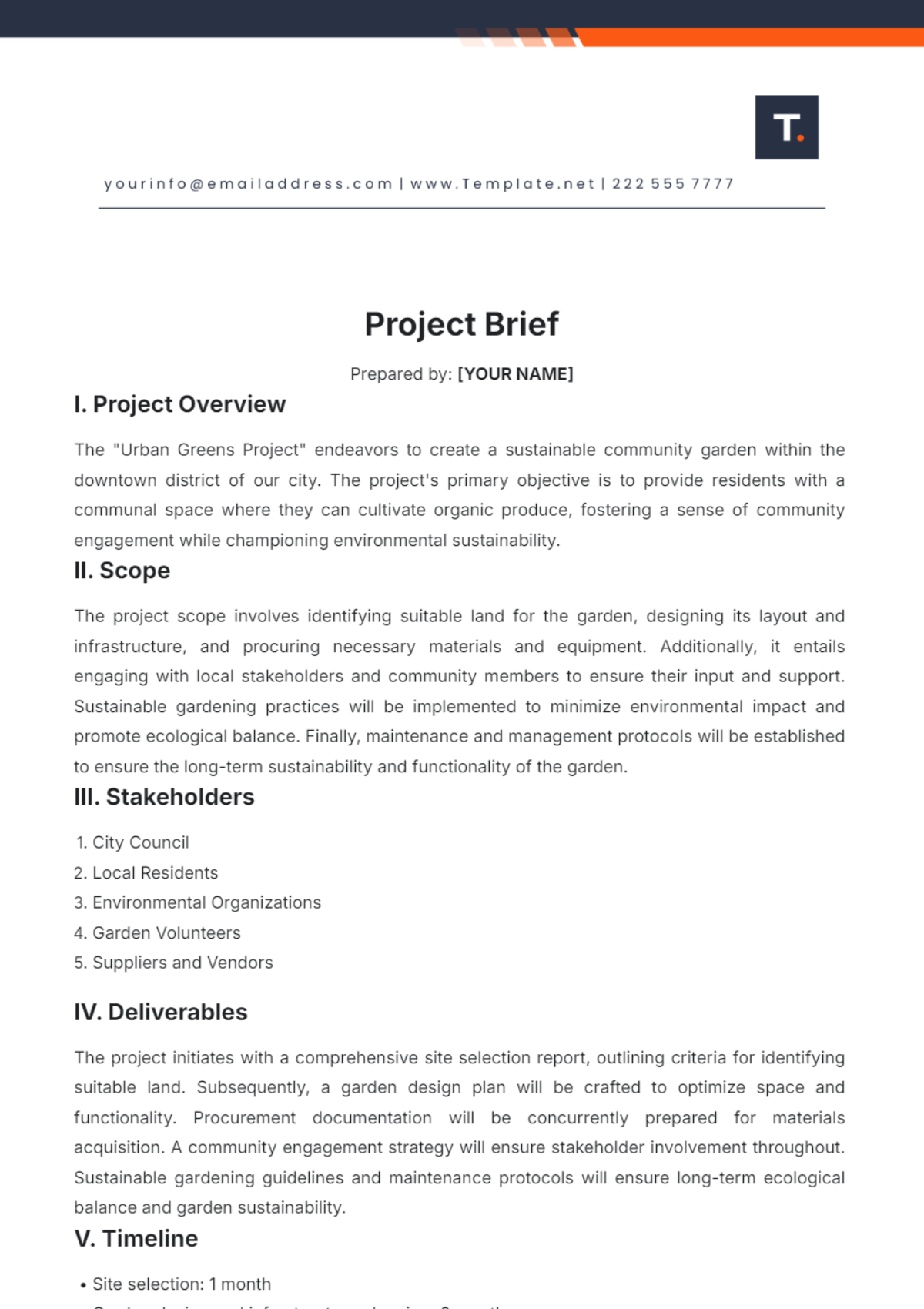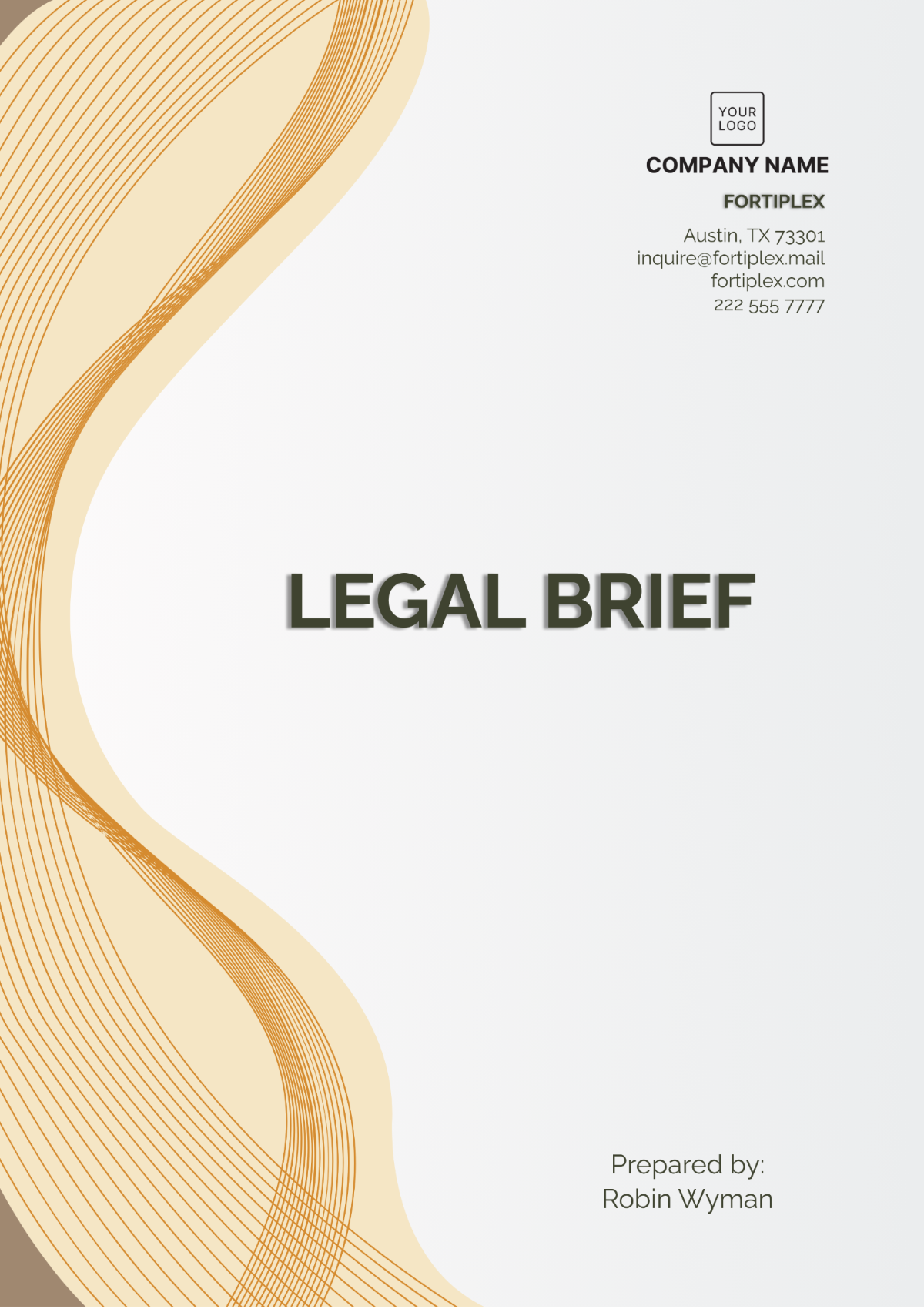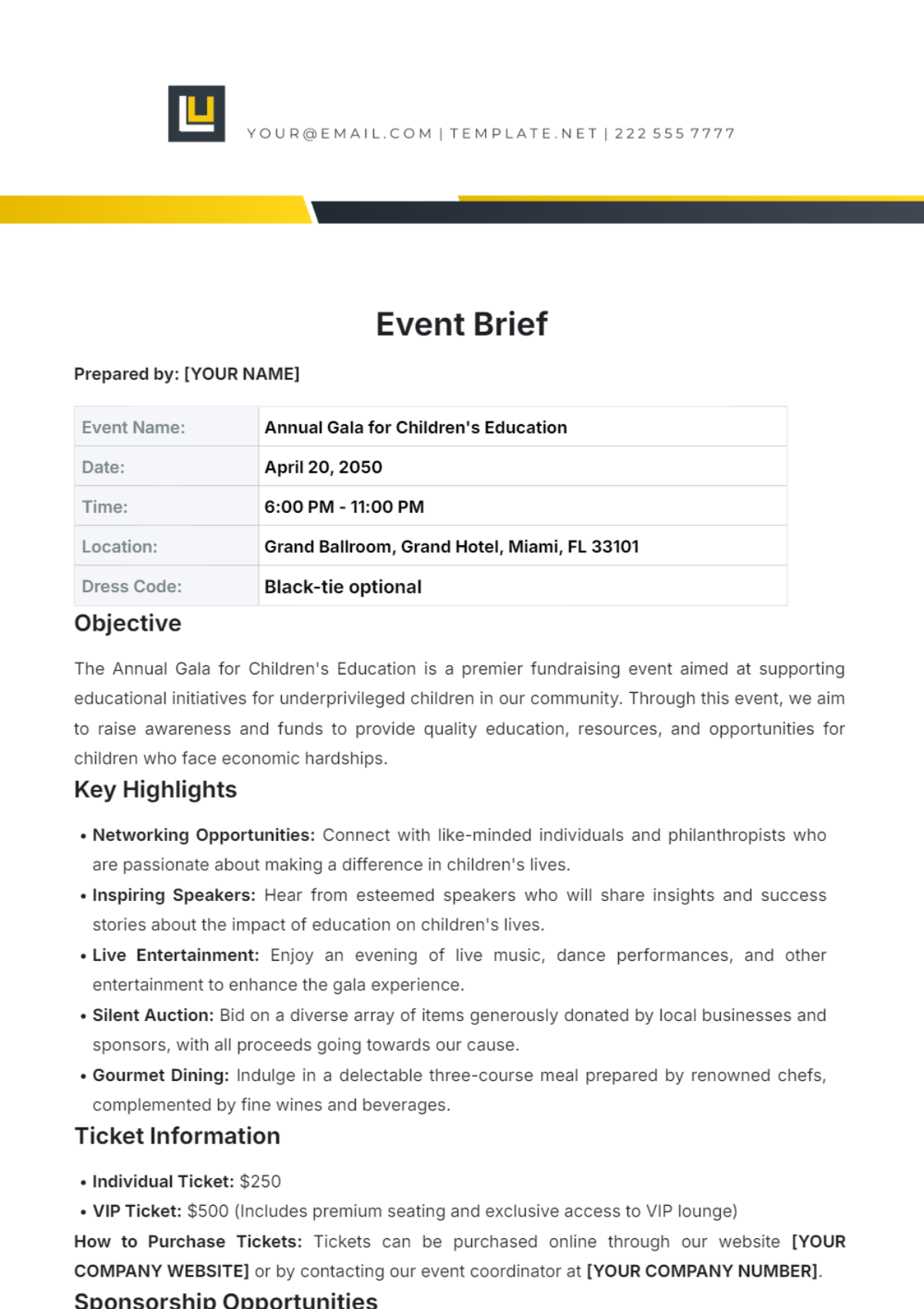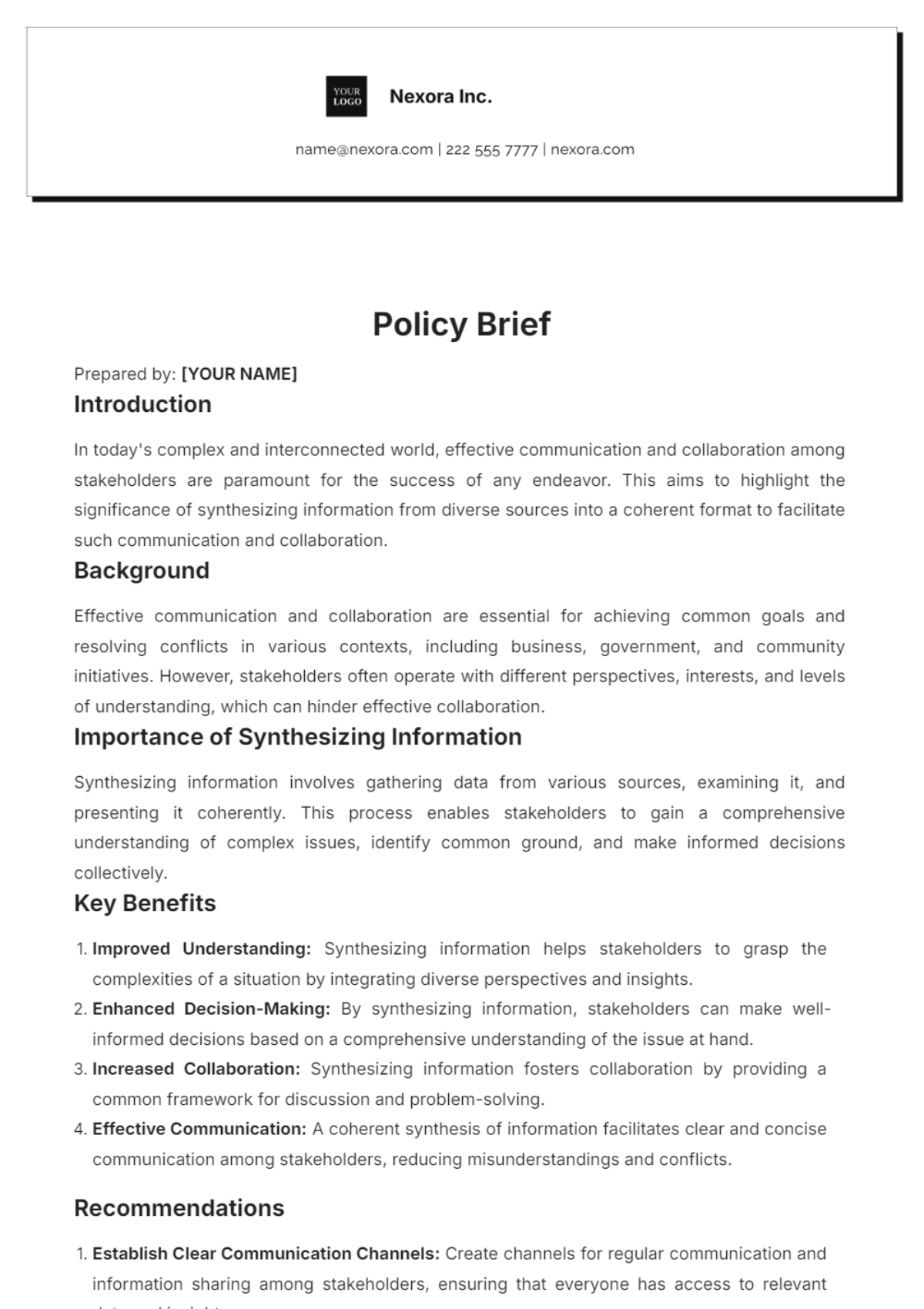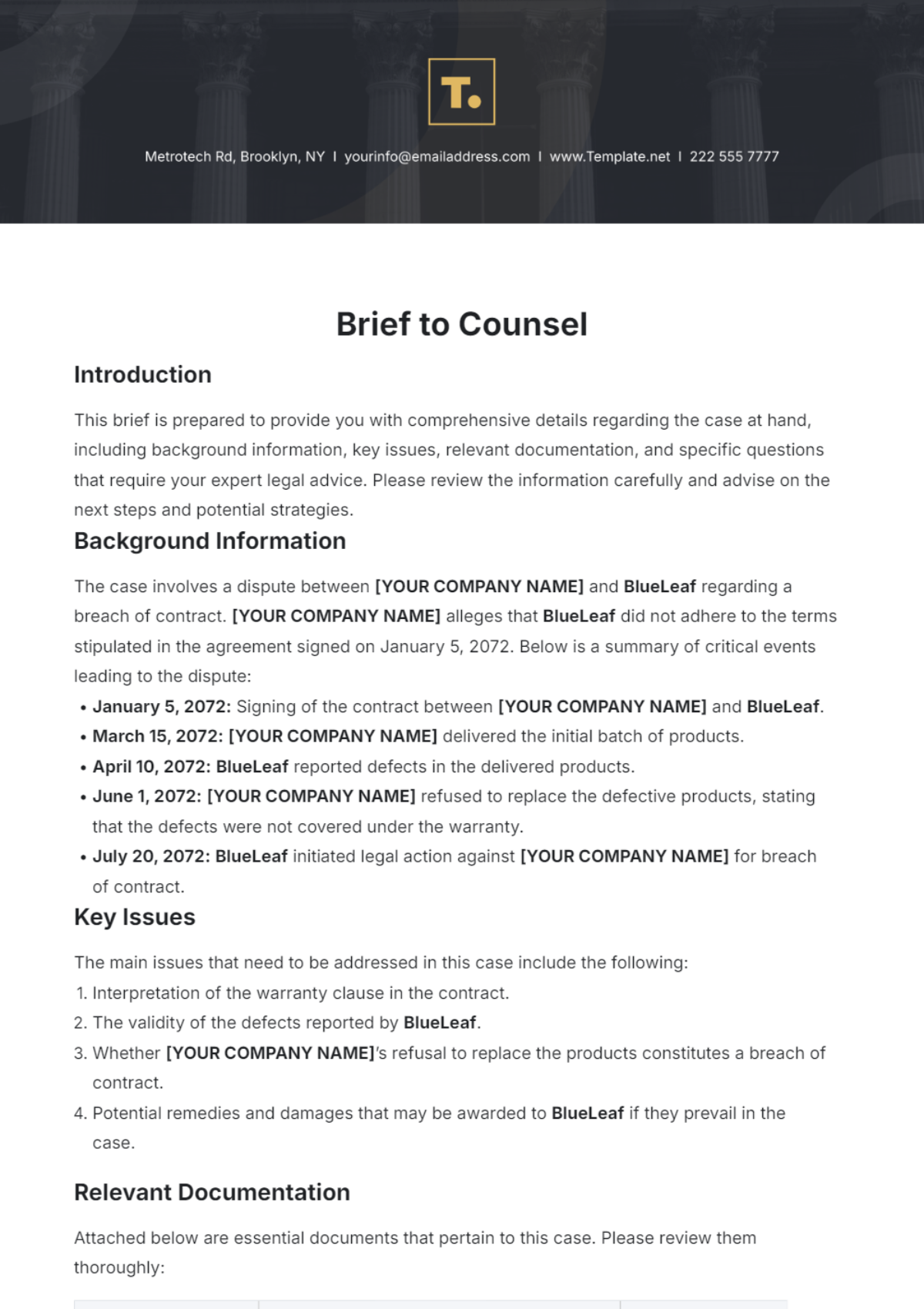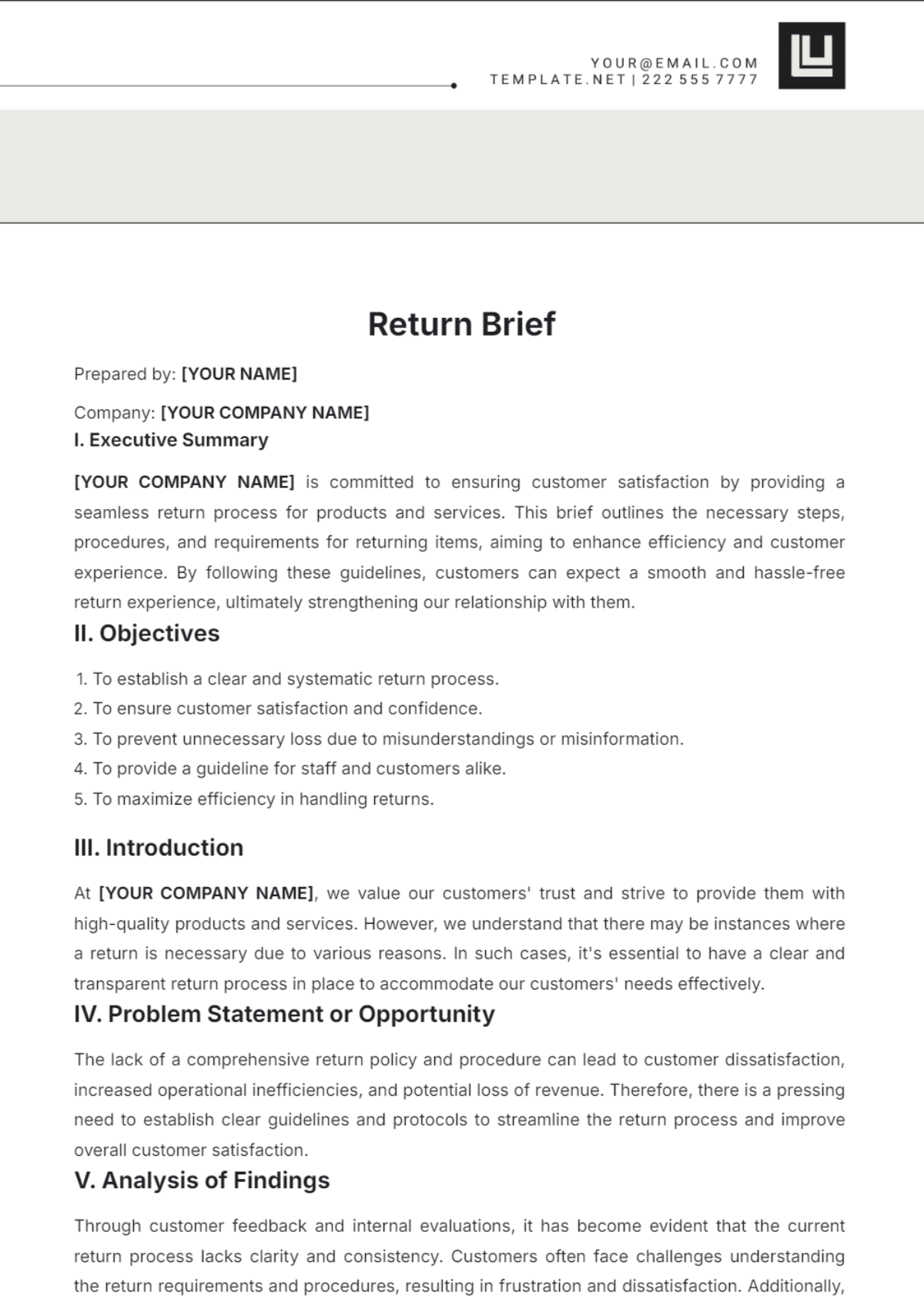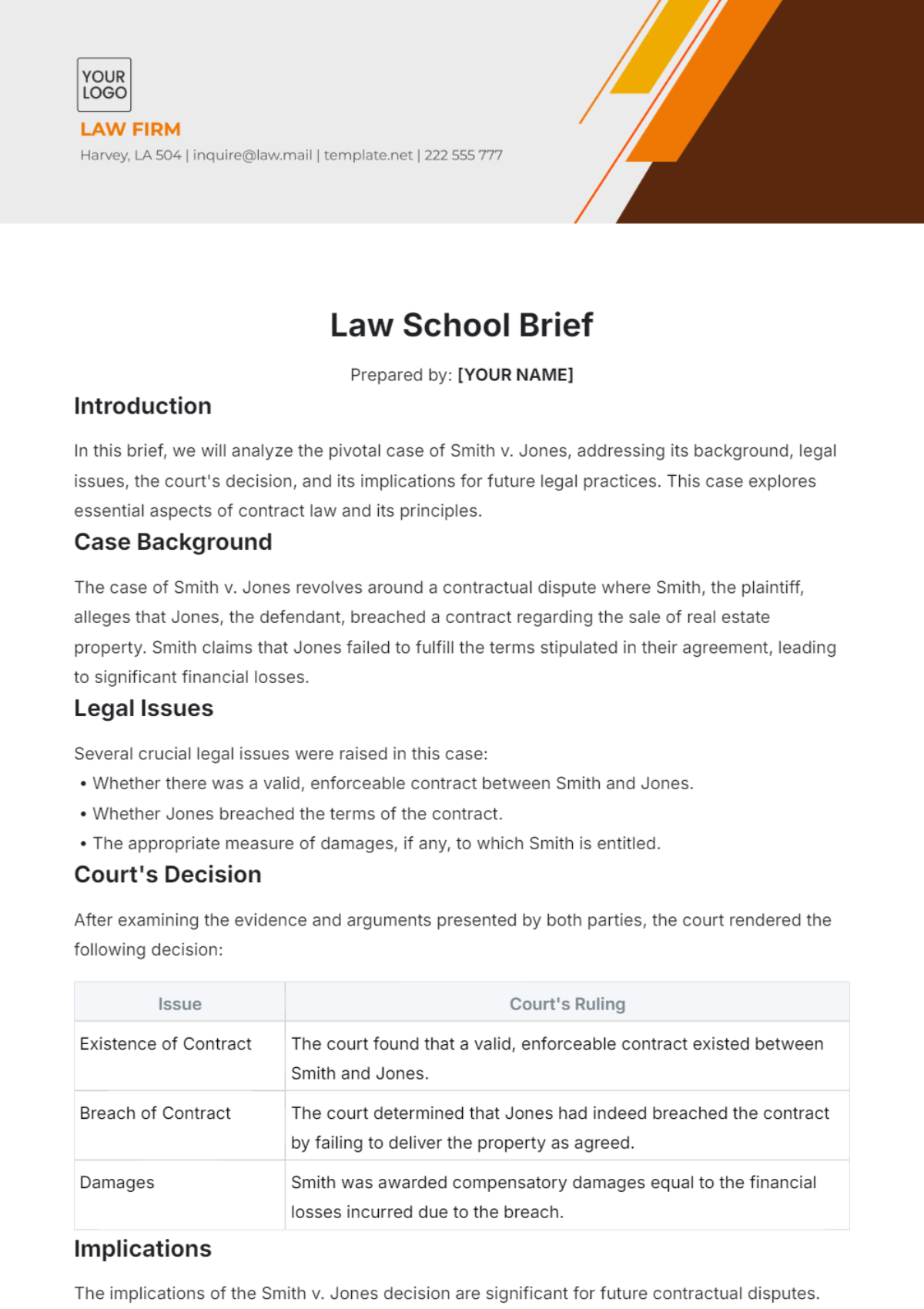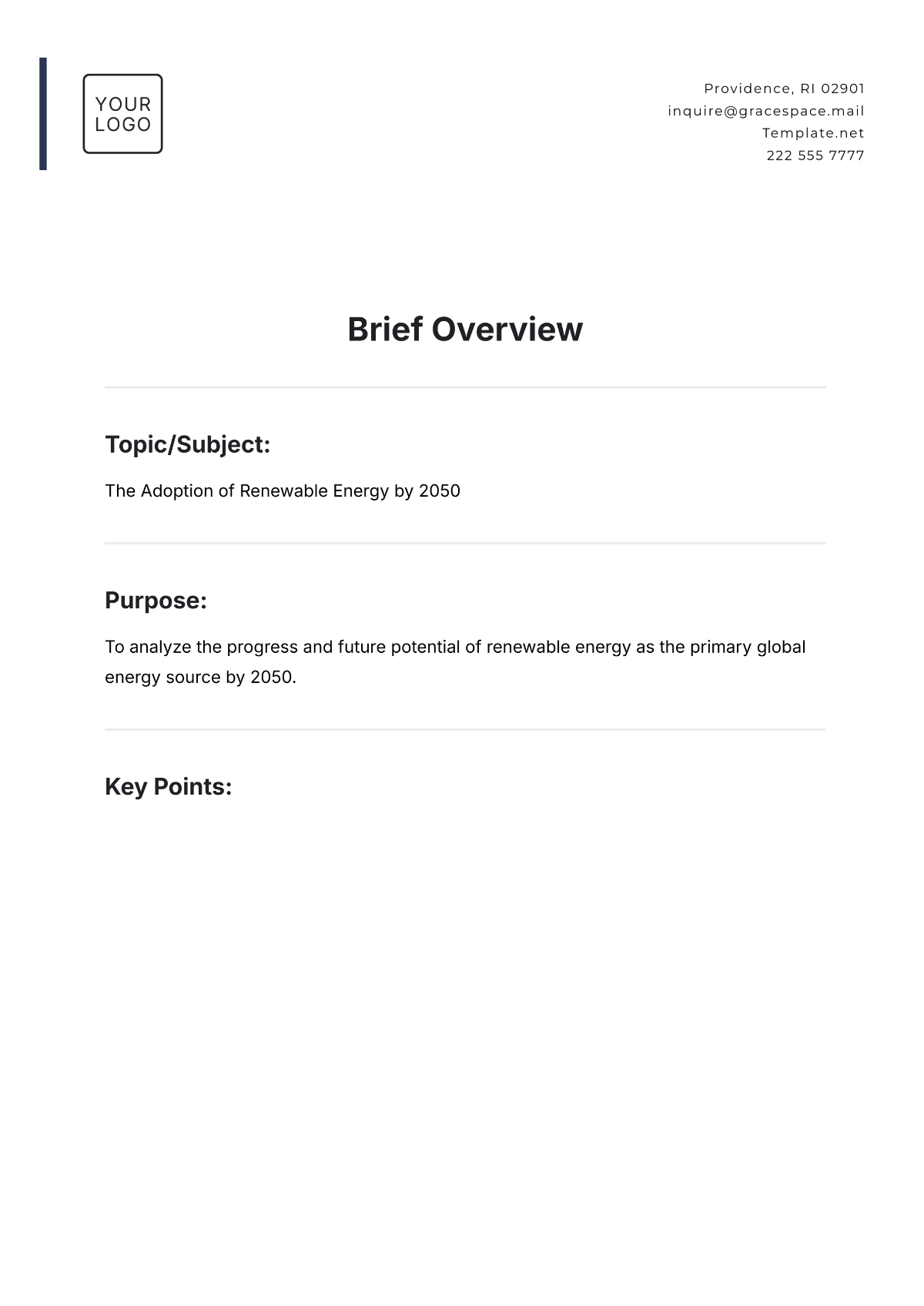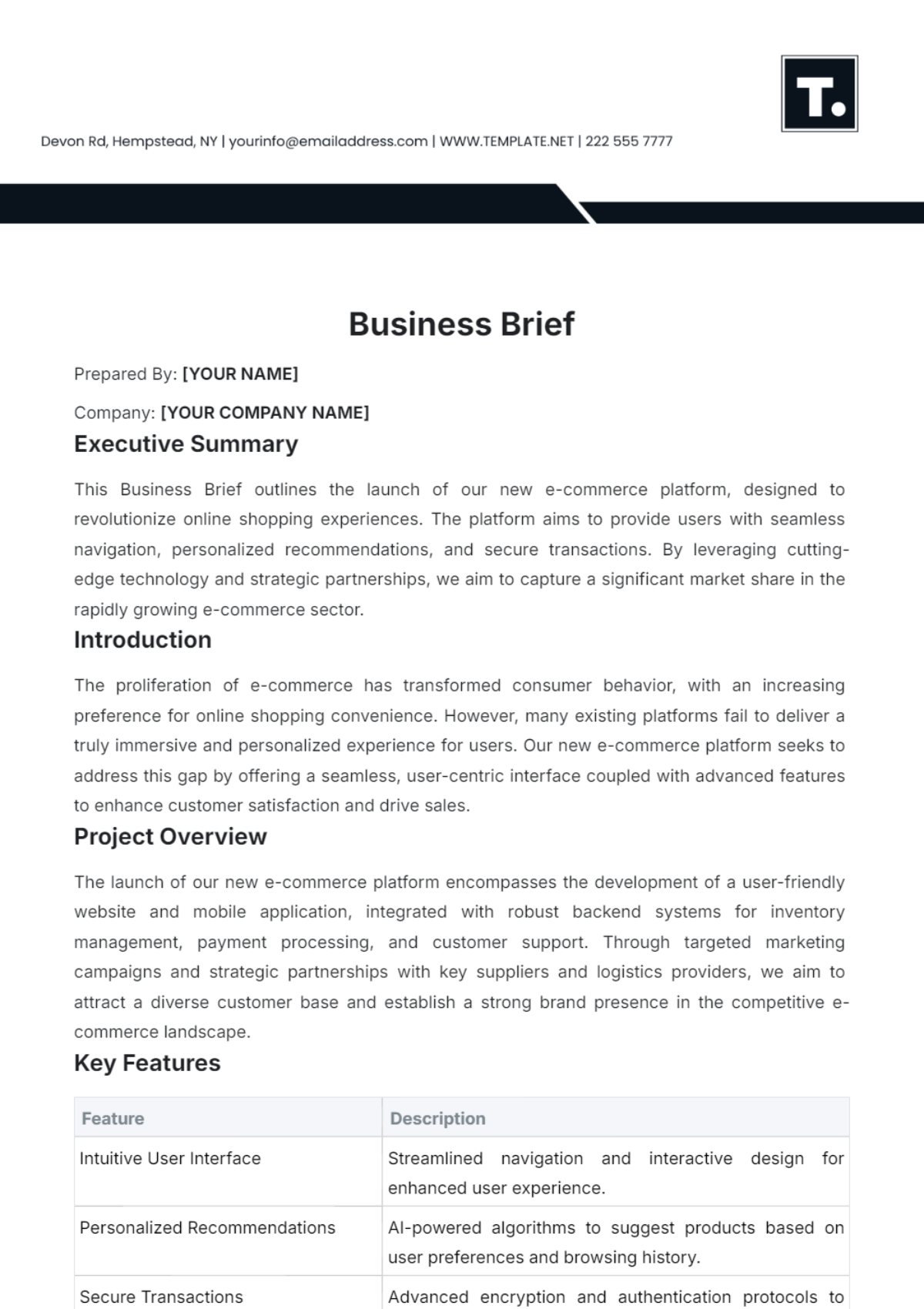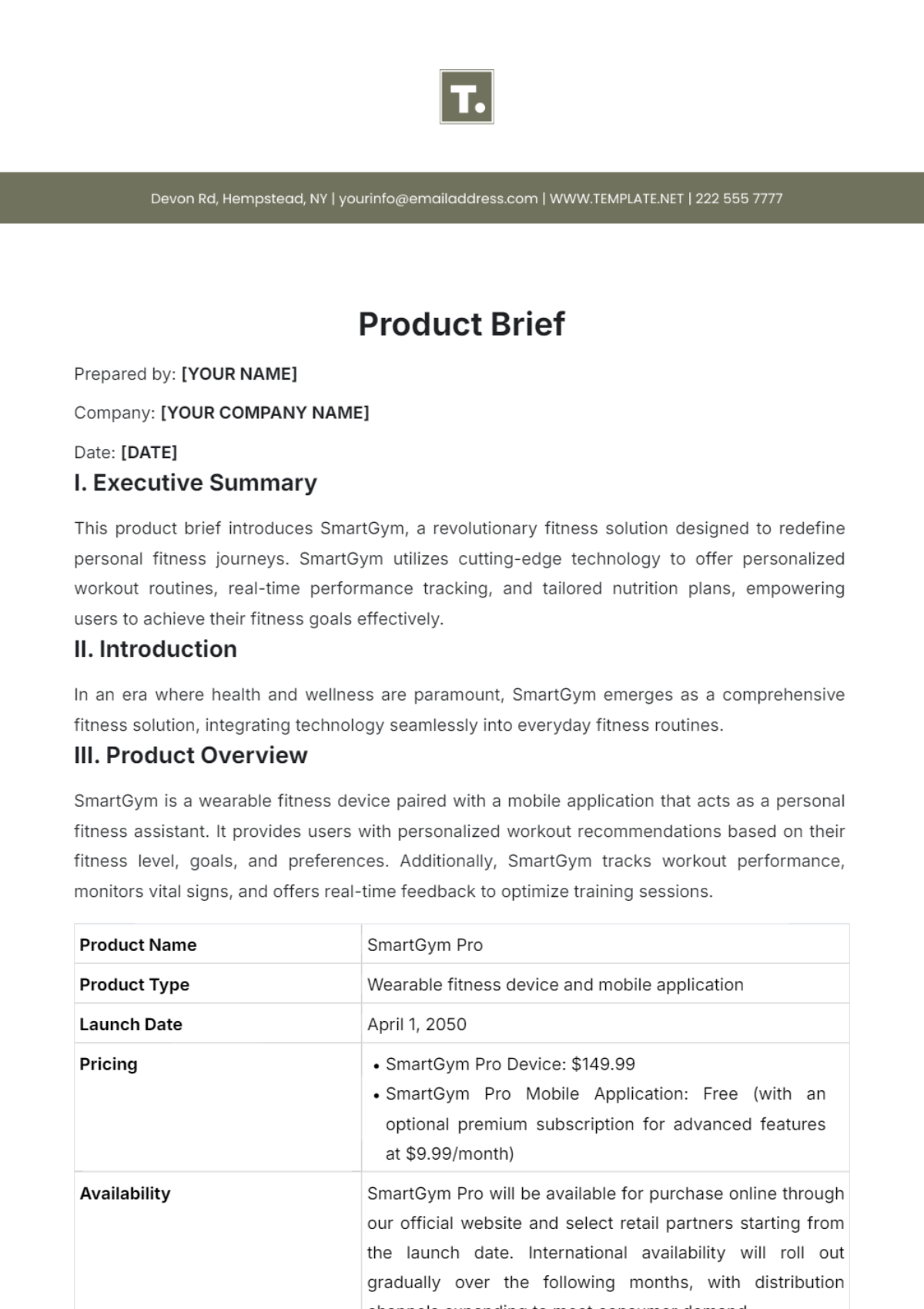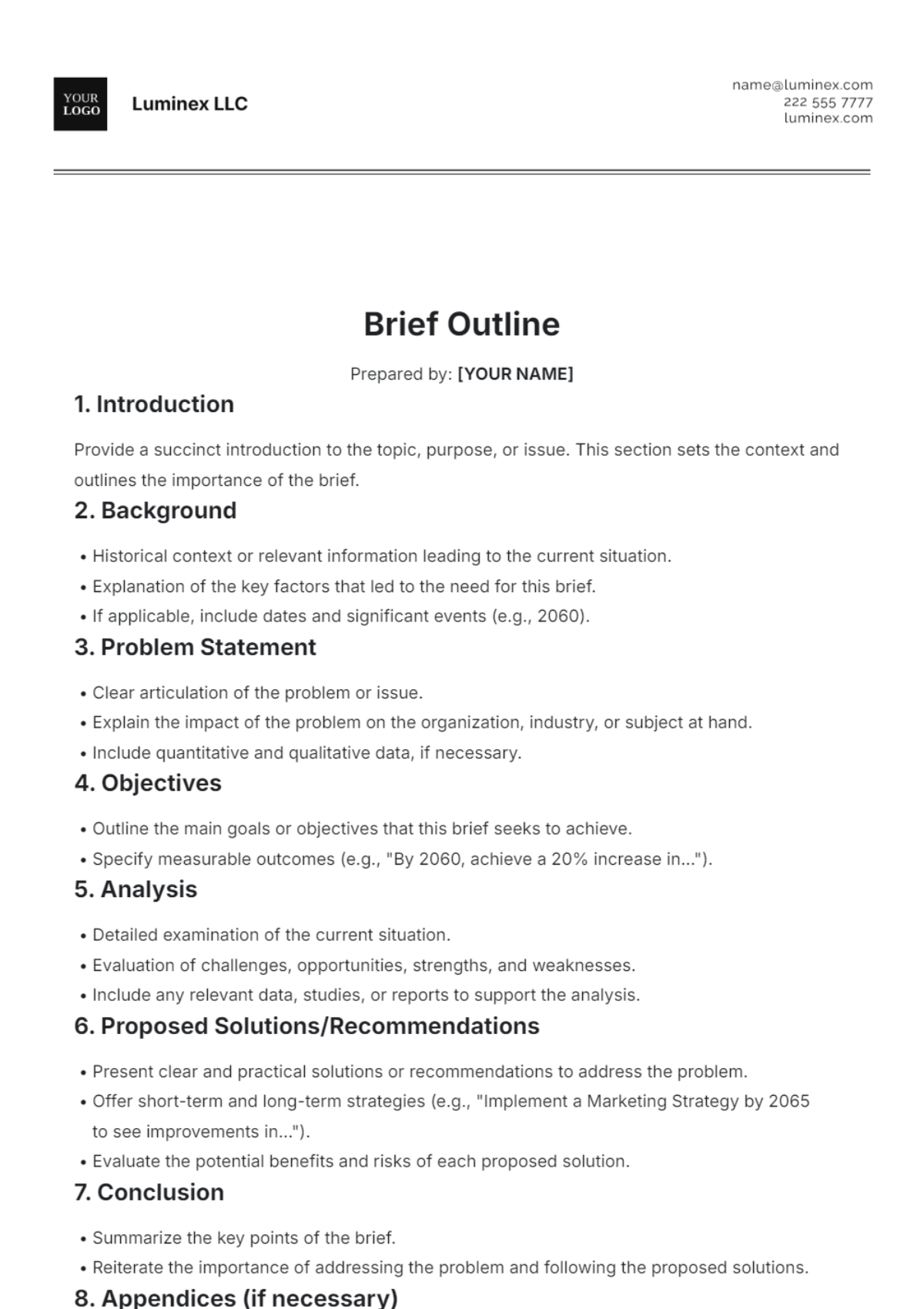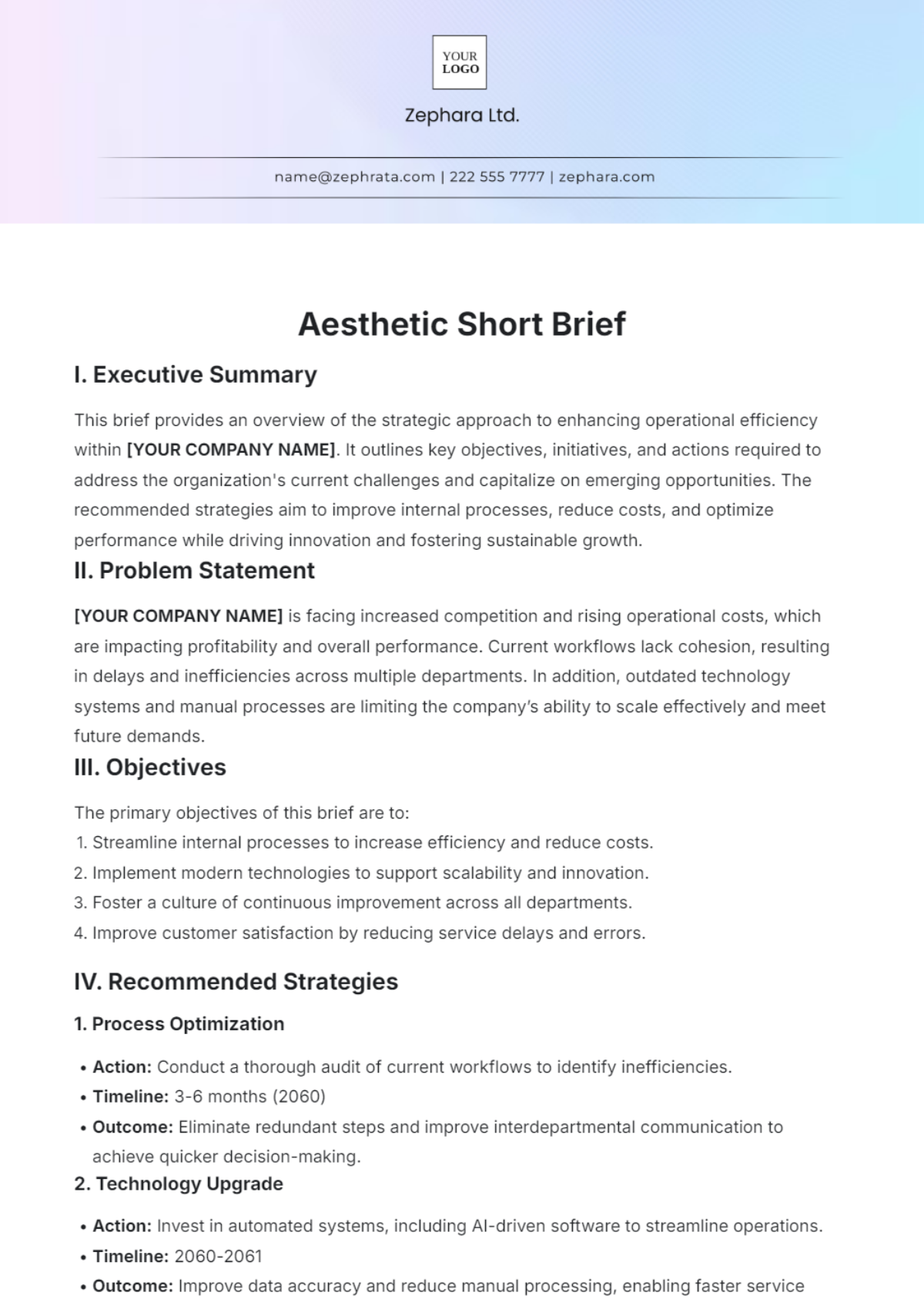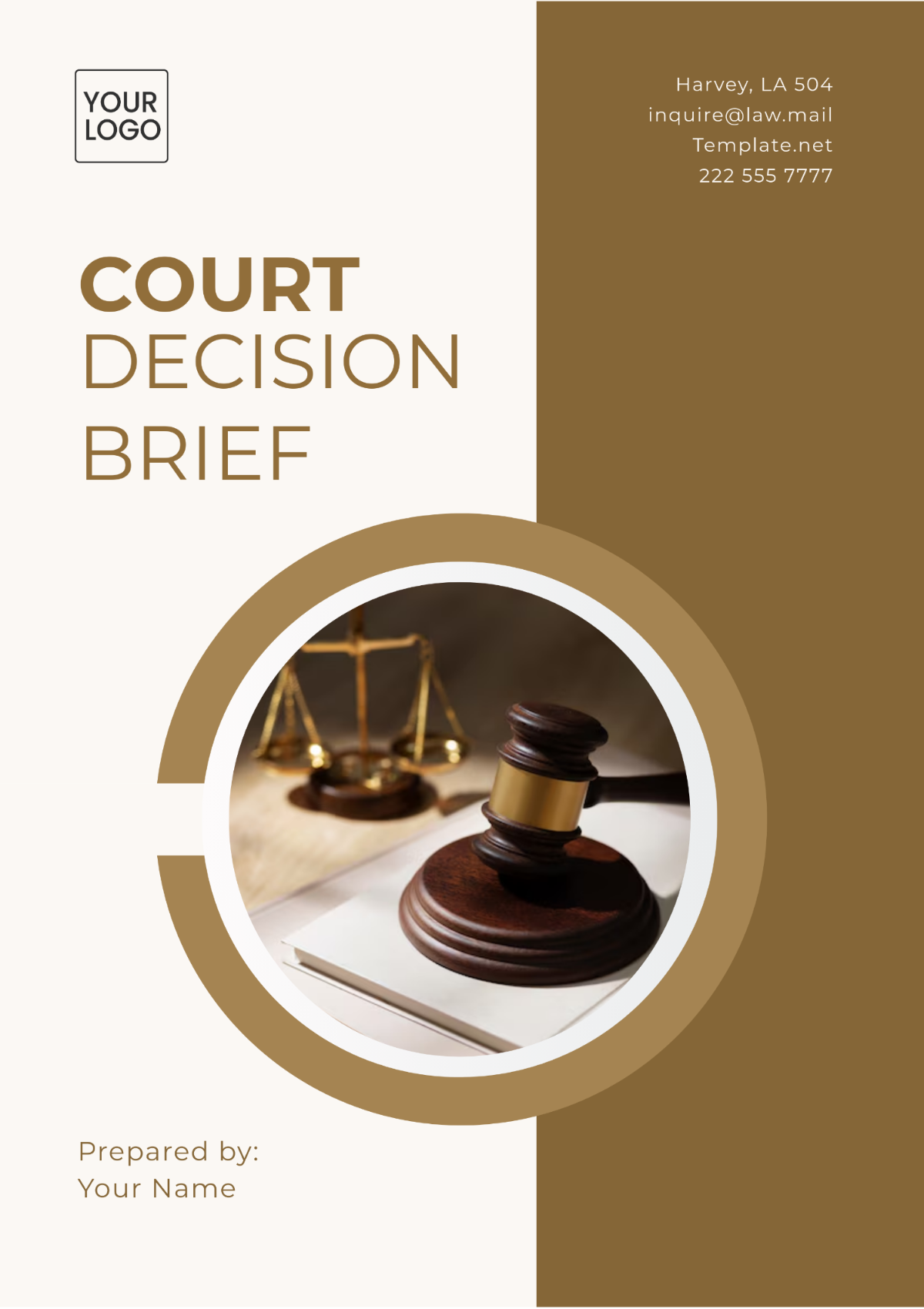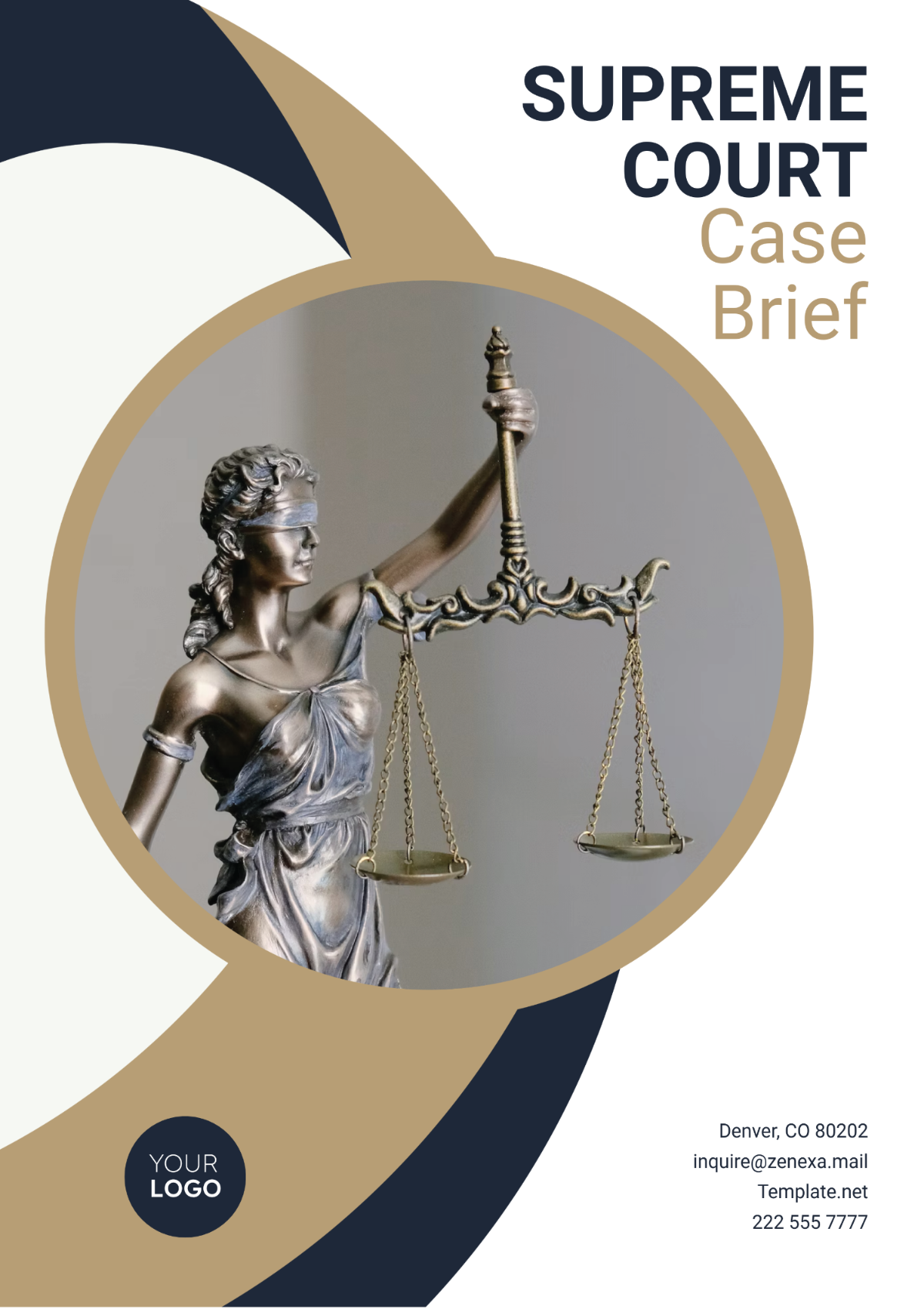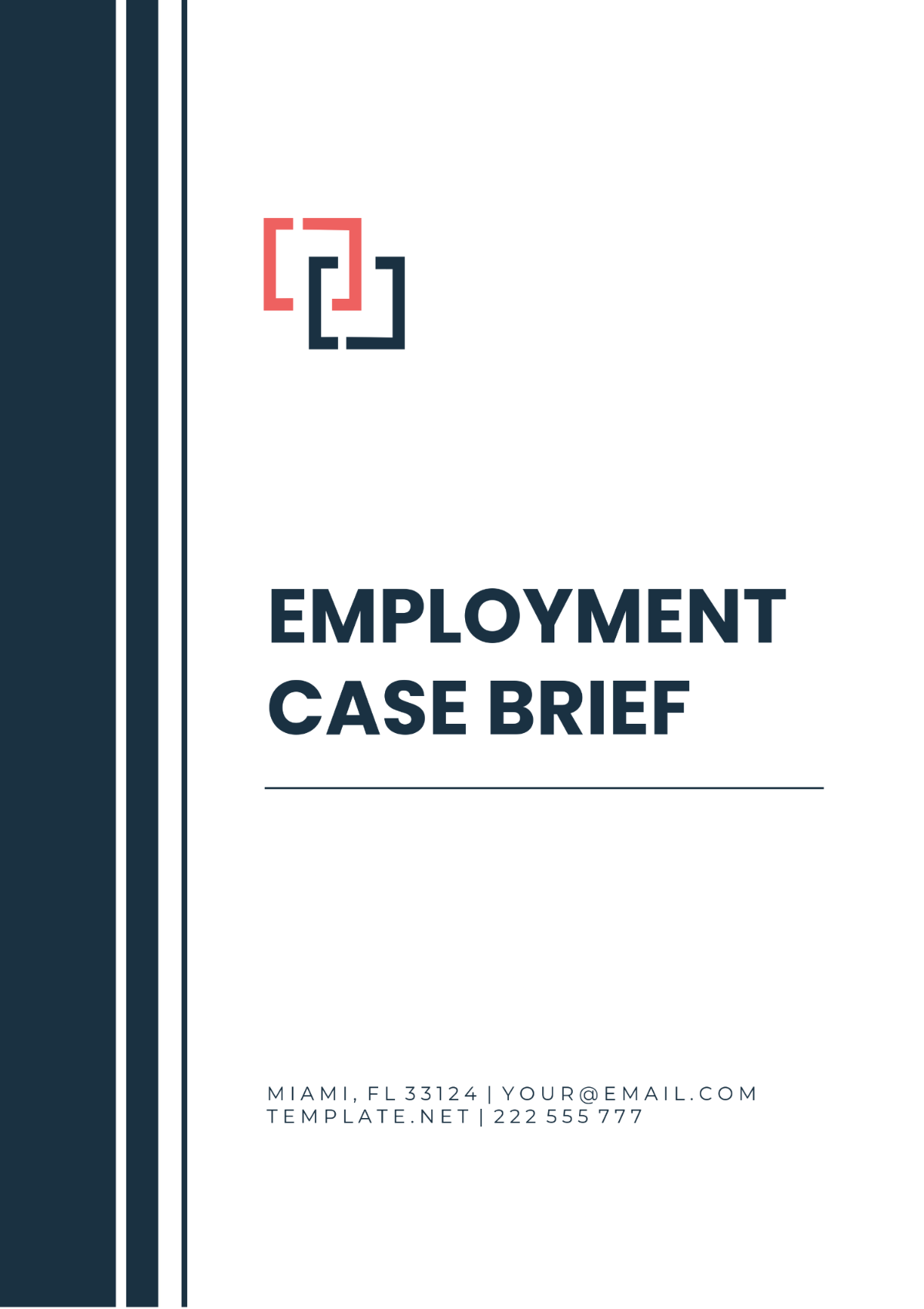Tutorial Assignment Case Brief
Prepared and submitted by: [YOUR NAME]
I. Case Title
Doe v. University of Texas
II. Case Citation
456 F.3d 789 (District Court 2054)
III. Facts
The case involves a dispute between Ms. Jane Doe a student at University of Texas, regarding discrimination and unfair grading practices in her tutorial assignments.
Ms. Doe claims that her tutorial assignments were subjectively graded by her professor, resulting in lower grades compared to her peers.
IV. Legal Issues
Whether University of Texas violated anti-discrimination laws and academic integrity policies in grading tutorial assignments.
Whether Ms. Doe is entitled to remedial measures or compensation for the alleged unfair treatment in her tutorial assignments.
V. Decision
The court ruled in favor of Ms. Doe, finding that University of Texas failed to ensure fair grading practices and maintain academic standards in tutorial assignments.
Ms. Doe was awarded reassessment of her assignments and compensatory damages for emotional distress caused by discriminatory practices.
VI. Analysis
The decision in Doe v. University of Texas underscores the critical importance of fair and equitable assessment practices in educational institutions. By ruling in favor of Ms. Doe, the court reaffirmed the principle that grading should be based on objective criteria rather than subjective judgments, particularly in tutorial or small-group settings.
This case highlights the need for academic institutions to establish clear grading guidelines and mechanisms for accountability to prevent discrimination and bias in student evaluations. Additionally, it emphasizes the broader implications for ensuring inclusivity and equal opportunities for all students to succeed academically, regardless of their background or circumstances.
VII. Conclusion
Doe v. University of Texas serves as a poignant reminder of the responsibility of educational institutions to uphold principles of fairness and integrity in assessment practices. As universities strive to create inclusive learning environments, it is imperative to implement policies and procedures that promote transparency, consistency, and equity in grading.
By doing so, universities can foster a culture of academic excellence where every student has the opportunity to reach their full potential without fear of discrimination or bias.

